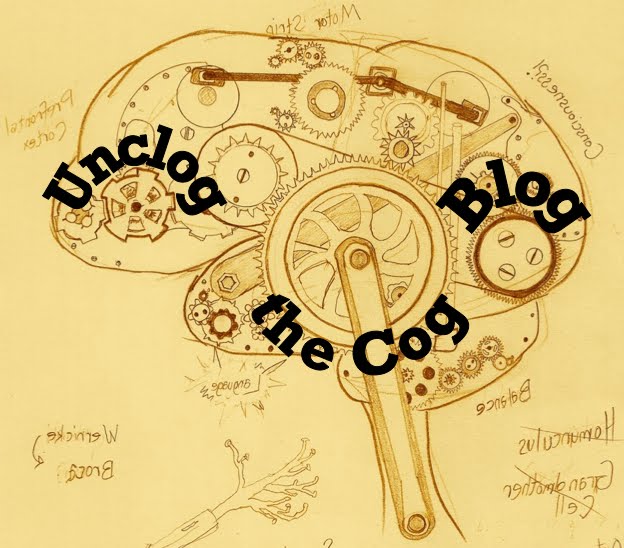I have to fess up to one of my educational fantasies. Often, I’ll be working with a kid, and I imagine what learning would be like without cognitive roadblocks. What we ALL would be like without these roadblocks, but especially them, right here and now.
I see the seeds of some good idea that the world needs to know about, and it isn’t coming out. The darn handwriting just doesn’t get it out fast enough before the darn monkeymind jumps on to some new thought. Or the words weren’t accessible - just stuck right there on the tip-of-her tongue - so why try to explain it anyhow.
I feel similar frustration trying to get needed ideas in. A 9-year-old can give me a phenotypical run-down on the difference between Indian and African elephants, but her brain never downloaded the sound-symbol codebook to be able to read a first-grade book about them (“Huh? A Frickin’ Elephant?!”).
What would life be like without these roadblocks, these input-output issues, these cognitive bottlenecks? Imagine the DaVinci Flying Machine that was never made because of poor visual-spatial skills. Or The Great American Novel never written due to waning attentional skills. Arg.
Often my fantasy of untapping potential drives my remediation sessions with a kid; I’m madly running through my ever-increasing key ring, fervently jamming well-used (or newly constructed) keys into quickly rusting locks. Then quickly trying to duplicate the keys and hand them over before a session ends, or a kid wants to just do homework, or some new profound tangent pulls us away.
Assistive Technology shares this fantasy of mine. With some skill building I’m a fan of voice dictation software (www.macspeach.com, www.nuance.com) to bypass graphomotor weaknesses, mindmapping software (www.inspiration.com) to scaffold organizational skills, reminder systems (www.reqall.com) to aide long-term memory retrieval, text to speech scanners and pens (www.kurzweiledu.com, www.quickpen.com) for decoding weaknesses, and voice recording and uploading pens (www.livescribe.com) for note-taking assistance. [Hmm. Maybe this is worth its own blog.] So, problem solved?
But sometimes I am of the mind that these cognitive bottlenecks are a GOOD thing. Perhaps they hold gifts wrapped in frustration.
For one, the process of figuring out ones’ learning is a more powerful tool than effortlessly gliding through school and then hitting a brick wall and having no way to recover. I worry about this when I see an 11-year-old with working memory skills in the very superior range (stronger than 98% of their same-age peers) and executive functioning/organizational skills within the borderline range (below the 9th %ile), who rightly claims “Nah, I don’t need an assignment notebook because I remember my assignments.” [No doubt he does, but there’s no way to undo those compensatory mechanisms and learn how to use an assignment notebook in Junior Year of High School in AP Class content.]
And does my image of unfettered potential even exist? A disembodied black box mind that effortlessly inputs information and exudes brilliance with no friction or resistance? I am too much a believer in Whorfian thinking and know that language and culture must change our thoughts. So a kid with an auditory processing or language disorder would be a different thinker without the bottlenecks. And I like this kid’s mind too much to be trying to change it!
A final reason cognitive bottlenecks may ultimately serve us is that they lead us toward our proclivities. Although extreme, consider the likes of Stephen Hawking, of Temple Grandin, of the Jill Bolte Taylors of the world. Annie Sullivan had almost completely lost her own eyesight before learning sign language and meeting Helen. Although clearly nowhere on the same scale of genius, personally, I have no doubt that my own frustrations coming up with that right word on the spot have led me toward expressing my truest thoughts and feelings non-linguistically through music. I don’t know where I would be without busking, writing songs, and gigging regularly.
Ultimately, these days I find myself reconciling my fantasies for unfettered potential (more Darwin flying machines!) and my respect for our existing neurocognitive architecture with an ever deepening faith in process over product.
I’m learning that the keys we uncover in our resilience serve us well beyond the immediate ease of showing our smarts.
.jpg)